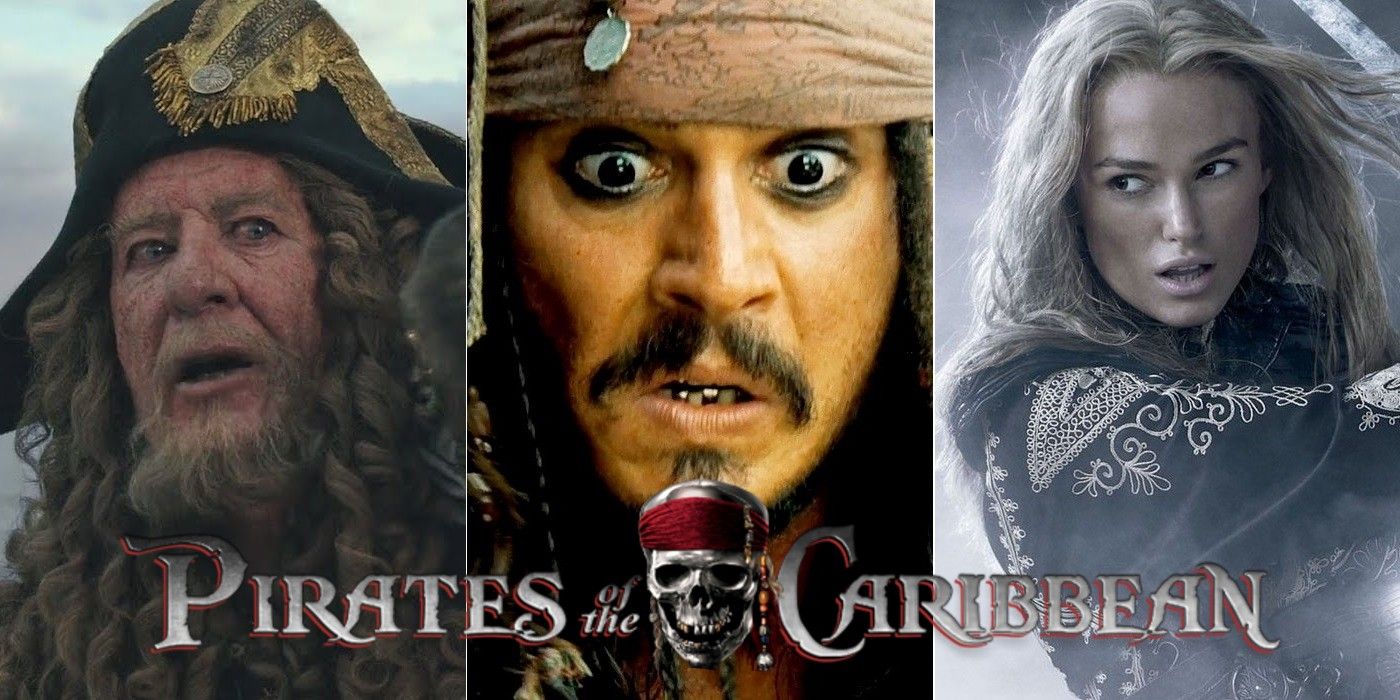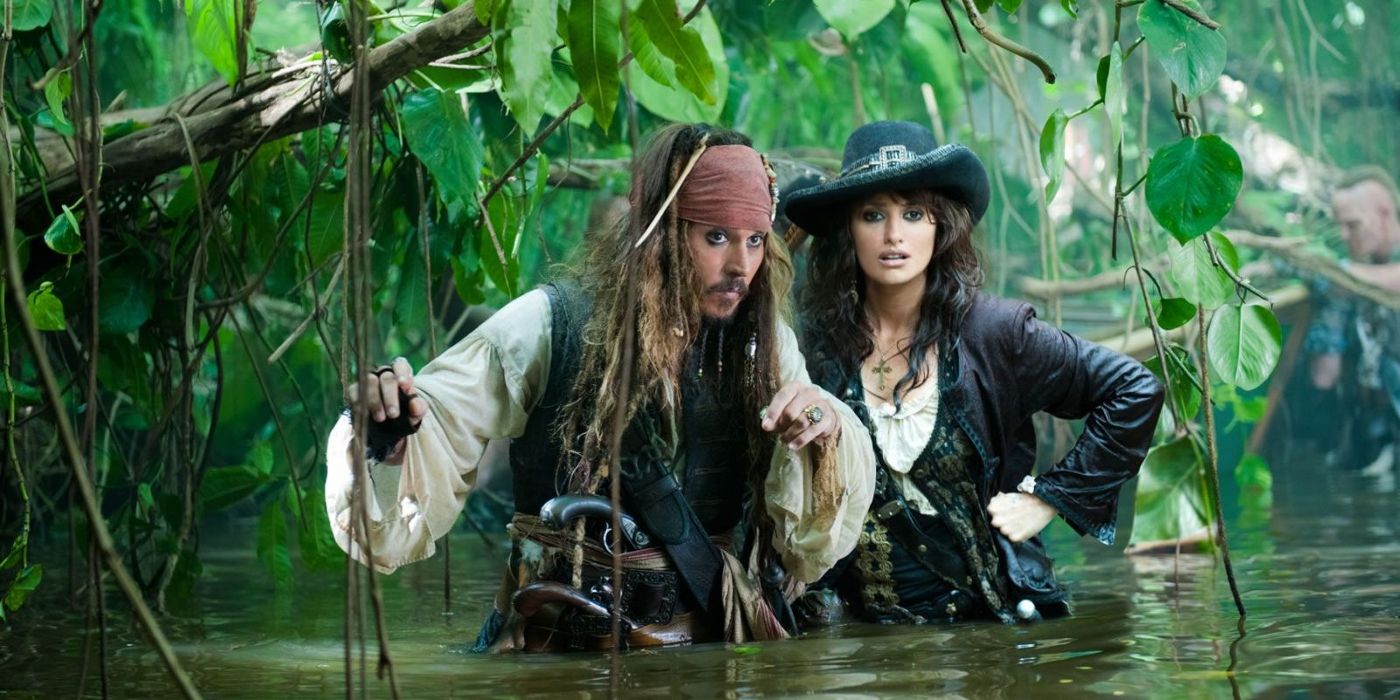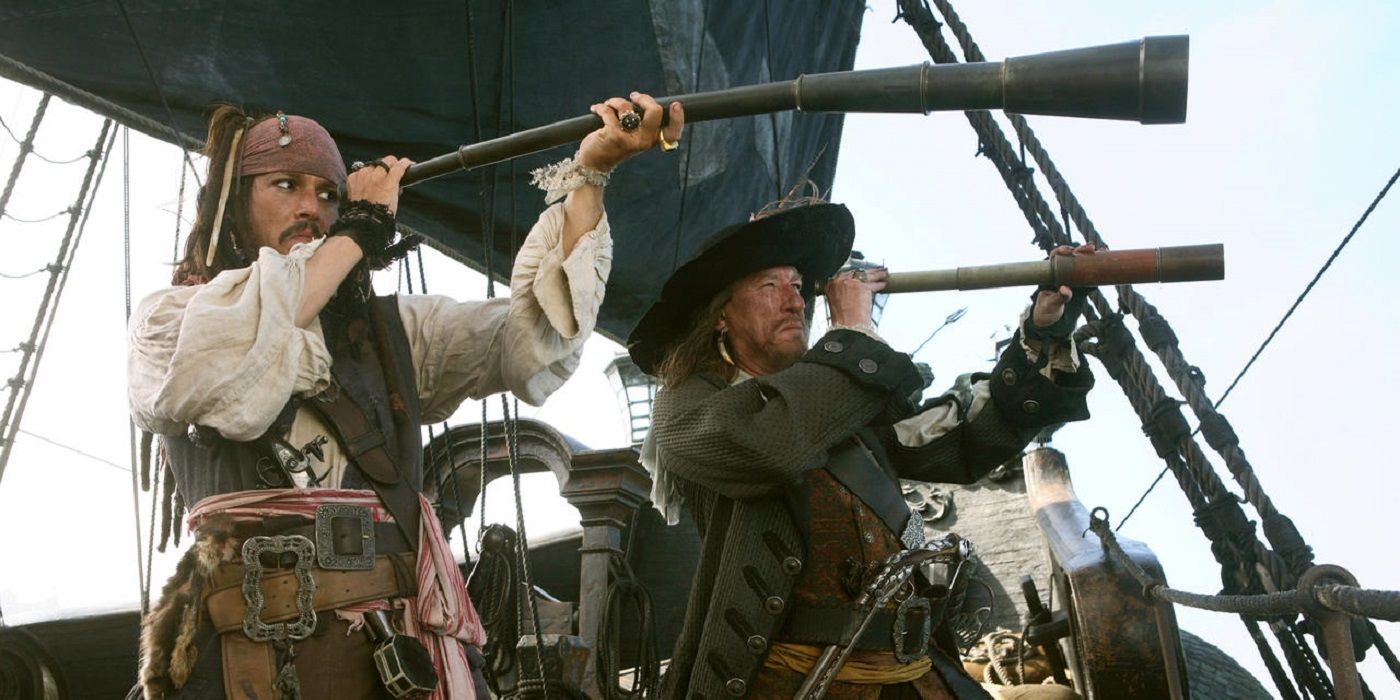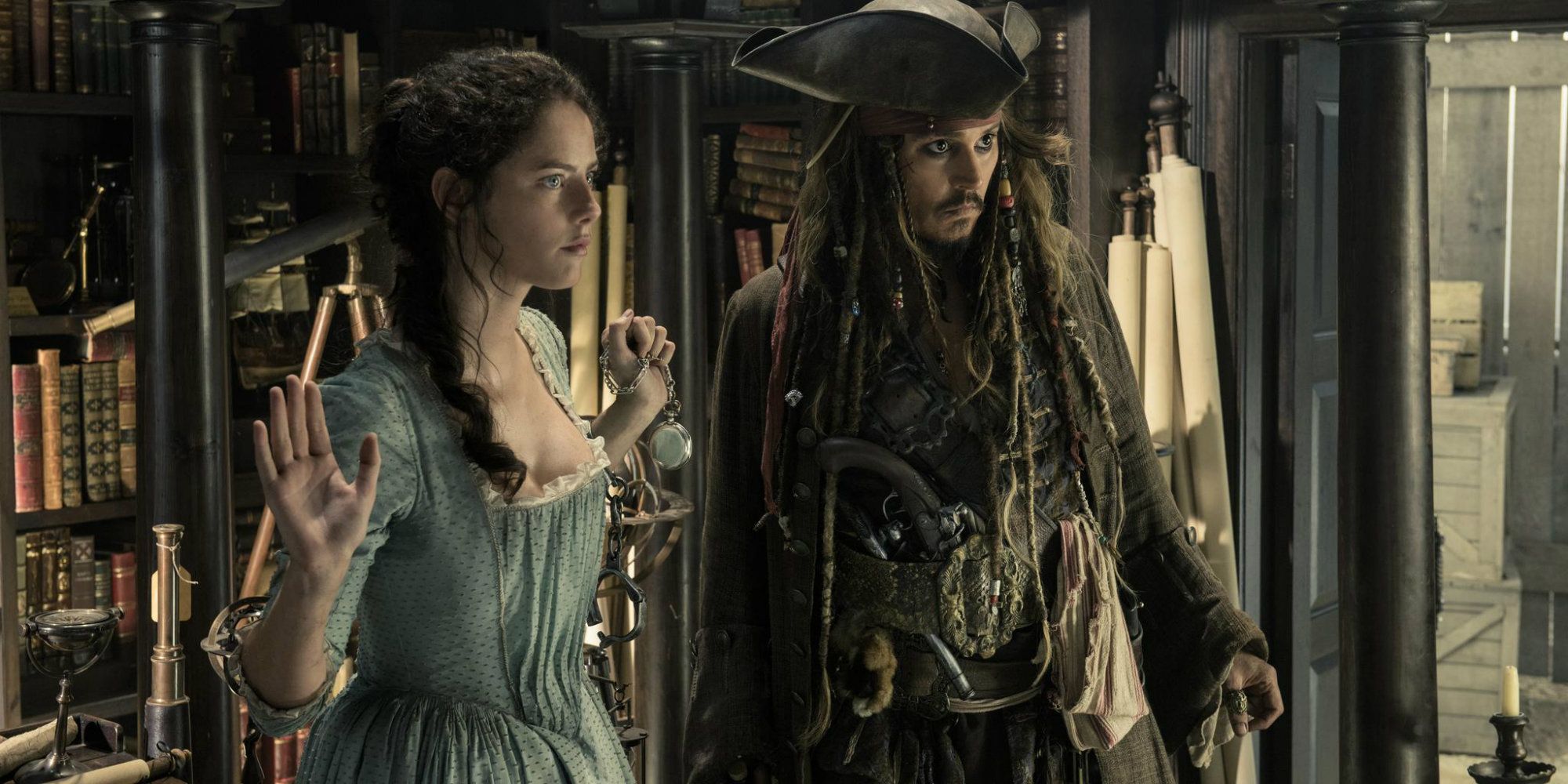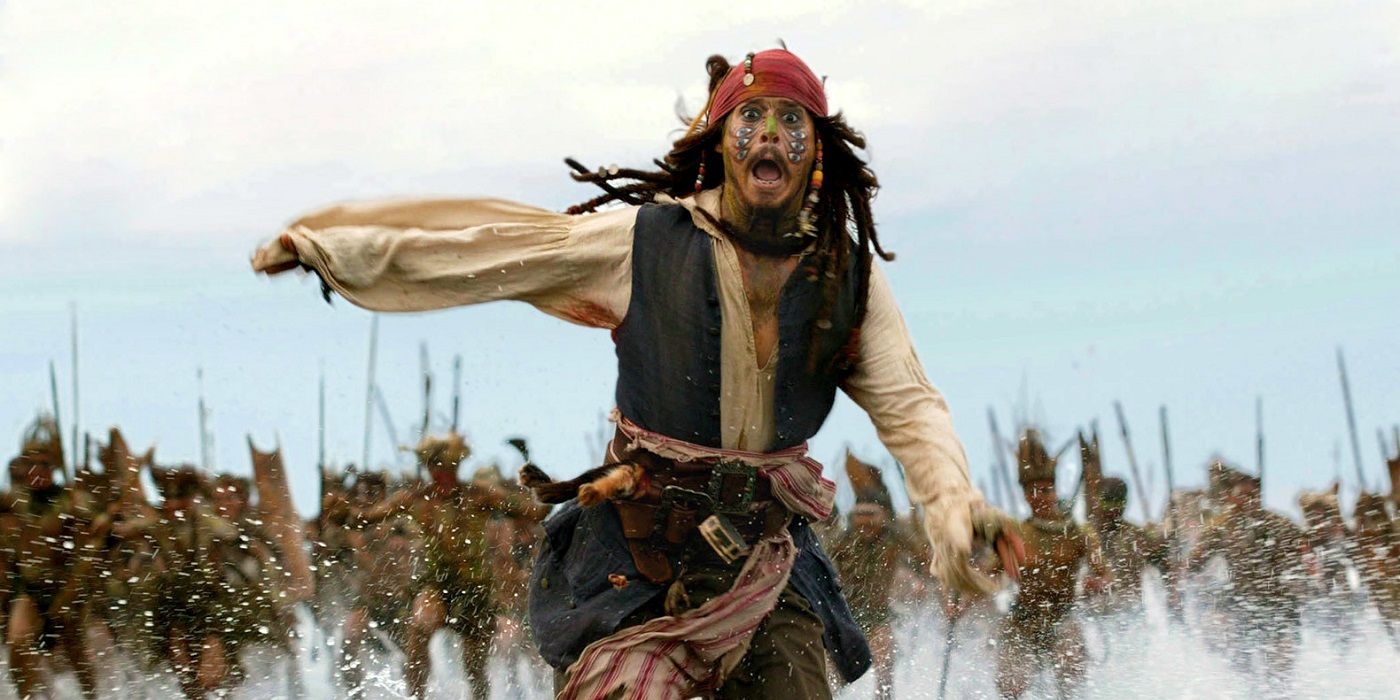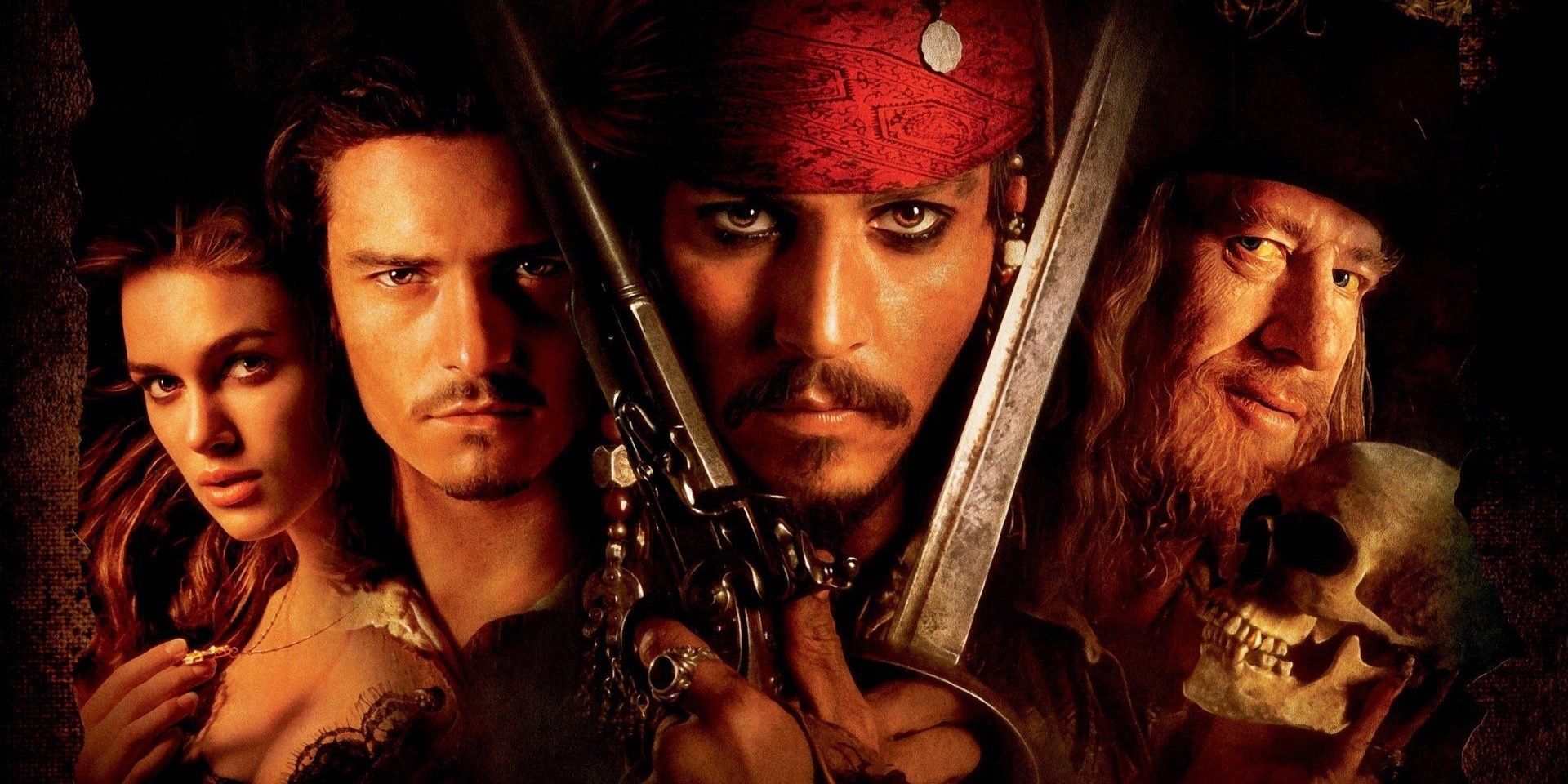Here's how the Pirates of the Caribbean movie series ranks from worst to best. They say anything can be given the movie treatment, but few would've expected a movie based on a theme park ride to become one of the highest grossing franchises in cinematic history. Indeed, Pirates of the Caribbean has a lot to answer for. Jerry Bruckheimer's nautical yarn cemented the A-list status of Keira Knightley and Orlando Bloom, while giving Johnny Depp arguably his most famous movie role. Captain Jack Sparrow would go on to become a film icon, and the Pirates of the Caribbean series spearheaded a new generation of billion-dollar blockbusters.
There's a distinct split in the Pirates of the Caribbean story. The initial trilogy of movies tell a fairly self-contained tale with the same crop of characters, but the subsequent 2 films are merely set within the same world and featured markedly different casts with only a select few familiar faces. A sixth entry is on the cards too, with Disney keen to keep one of their biggest properties alive, but details and casting remain unknown at present.
Pirates of the Caribbean might've changed the game at the box office, but has weathered stormier seas critically, with fan reaction and reviews varying wildly across the series. As a result, a general consensus on the franchise's trajectory has developed over time that audiences and critics generally agree upon. This is our ranking of the 5 Pirates of the Caribbean movies from worst to best.
5. Pirates Of The Caribbean: On Stranger Tides
After the original Pirates of the Caribbean trilogy ended, the franchise found itself at a crossroads. Captain Jack's desire to seek out the Fountain of Youth set up a potential fourth movie, but At World's End had more or less brought the series to a natural conclusion. On Stranger Tides was the first test of whether Depp's character could carry the property without support from the likes of Bloom and Knightley and while the answer, financially speaking, was a resounding "yes," the fourth Pirates of the Caribbean film is generally considered the weakest effort in the series by some margin. Uniting Depp and Geoffrey Rush's Barbossa with newcomers Ian McShane and Penelope Cruz as Blackbeard and his daughter, On Stranger Tides certainly didn't lack for star power.
Unfortunately, the film lacks almost everywhere else. The adventure to find the Fountain of Youth is a simple premise, but one that still manages to feel erratic, all while lacking the fun sense of swashbuckling exploration and danger that made Pirates of the Caribbean a world-beating franchise in the first place. Predictably, the performances are strong, particularly from Depp and Rush, but Blackbeard and Angelica fail to spark the same likability or interest as the cast of the original trilogy. That's mostly the fault of the script, which barely allows room for character development among the glut of action sequences. On Stranger Tides is, in essence, Pirates of the Caribbean lite; an overly-familiar, by-the-numbers retread that passes by without event.
4. Pirates Of The Caribbean: At World's End
At World's End falls victim to 2 very common movie trilogy problems. Firstly, it fails to stick the highly-anticipated landing, and secondly, the film tries to outdo all previous entries in spectacle and bombast. The final installment of the original Pirates of the Caribbean was the craziest yet and while it's difficult to jump the shark in a franchise that has a villainous human squid and 18th century eyeliner, At World's End gives a damn good try. On one hand, the third installment retains that early Pirates magic and rounds off the stories of Jack, Will Turner and Elizabeth Swann in more or less satisfying fashion. The destination isn't necessarily the problem in At World's End, which is solid in its action, performances and spirit - it's the voyage to get there.
As a (supposedly) final chapter, At World's End doesn't cut to the heart of the matter. New characters, fresh plot threads and emerging lore take up plenty of space in the already-bursting script, leaving very little room for characters to breathe, but necessitating plenty of exposition and setup before reaching the grand finale, which is arguably overshadowed by the climaxes of its predecessors anyway. Bruckheimer and Gore Verbinski's (original Pirates of the Caribbean director) final collaboration on the high seas is far messier than On Stranger Tides and much more convoluted, but it does entertain more reliably.
3. Pirates Of The Caribbean: Dead Men Tell No Tales/Salazar's Revenge
The most recent Pirates of the Caribbean offering posted the lowest box office since 2003 but was actually one of the better entries in Captain Jack's can(n)on. Wisely moving away from On Stranger Tides and into fresh waters entirely, Dead Men Tell No Tales makes another astute creative change by introducing younger blood in the form of Brenton Thwaites and Kaya Scodelario. And it's difficult to go wrong with Javier Bardem on villain duty. Aside from an improved cast that brings back familiar faces without relying on them, this fifth voyage feels lighter both in terms of content and tone, making use of a streamlined plot and a return to the spirit of old. However, like The Force Awakens to 1977's Star Wars, Dead Men Tell No Tales sometimes veers too close to the original's format and risks feeling derivative.
It would be a stretch to suggest that Dead Men Tell No Tales breathes new life into Pirates of the Caribbean, but it at least throws out a lifeline that steadies the franchise's rapidly diminishing returns. Disney might've hoped that Thwaites and Scodelario would lead a Depp-free future for Pirates of the Caribbean, but the studio's lack of urgency in making a follow-up proves such ideas were overly-optimistic. The rumored casting of Karen Gillan as a brand new protagonist hints at yet another change of direction when Pirates of the Caribbean sails once again.
2. Pirates Of The Caribbean: Dead Man's Chest
Sequels are always a tricky business, and it's hard to argue that Dead Man's Chest is an improvement upon The Curse of the Black Pearl with a straight face. Splitting up the core cast means every main character has their own distinct motivations, which in turn makes for a more complicated plot within a movie that was already going "bigger" in terms of visuals and action sequences. While nowhere near as disjointed as the subsequent 2 efforts would be, Dead Man's Chest does at times feel like a movie studio realizing the value of Pirates of the Caribbean and trying to angle for further installments instead of delivering the direct-to-the-veins shot of pirate goodness that was The Curse of the Black Pearl. Had Dead Man's Chest included the rescue of Captain Jack as a finale instead of aiming for a cliffhanger, the sequel might've really been onto something.
As it stands, Dead Man's Chest remains a worthy continuation of the Pirates of the Caribbean world, and the franchise wouldn't have enjoyed such longevity had the initial sequel not delivered at least a little bit. Johnny Depp refines his performance as Jack Sparrow, the addition of Bill Nighy as Davy Jones is wonderful and as much as Dead Man's Chest meanders around its central story, the world-building does serve to paint a more vivid and detailed fictional world. That's not to say the second film rocks the boat - the formula of the first is very much intact - but there is a subtle evolution that sees Dead Man's Chest take itself a touch more seriously, not necessarily to its benefit.
1. Pirates Of The Caribbean: The Curse Of The Black Pearl
By some distance, the very first Pirates of the Caribbean movie remains the one to beat and an archetype for modern franchise-building blockbusters. The Curse of the Black Pearl represented pirates on a previously unseen cinematic scale and the combination of action, humor and colorful characters ensured near-universal appeal. The visuals are stunning and although later installments would make use of improved CGI, The Curse of the Black Pearl doesn't let the sights, sounds and explosions get in the way of good characters. Free from the burden of expectation, Pirates of the Caribbean was also a (slightly) more grounded experience in 2003, introducing touches of mystical sea lore rather than huge swathes of it.
And of course, a huge part of The Curse of the Black Pearl's success comes from the novelty of seeing Depp's Captain Jack Sparrow for the very first time. By film 3, Sparrow was quickly developing into a parody of himself, forcing Depp to try and out-kook himself in order to retain his trademark unpredictability. In his debut, however, Sparrow is a breath of fresh air in an industry that so often reuses cookie-cutter lead characters. Subsequent entries might boast bigger budgets and shinier effects, but The Curse of the Black Pearl does a lot more with less and almost 20 years later, it's still difficult to come away not feeling entertained. Whatever the future holds for Captain Jack and his fellow Pirates of the Caribbean, Disney will be hard-pressed to match this modern classic and the legacy it still holds.

